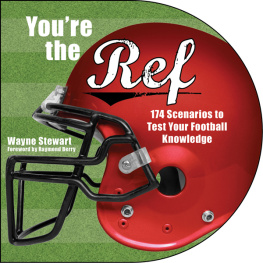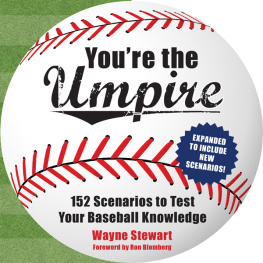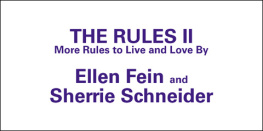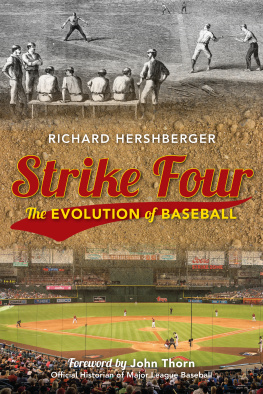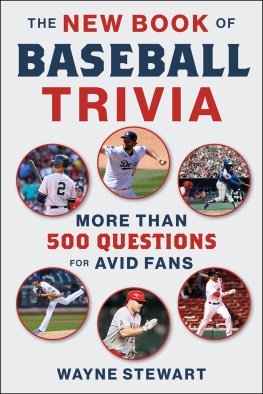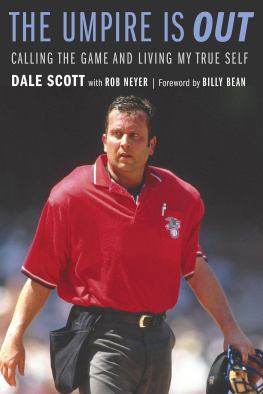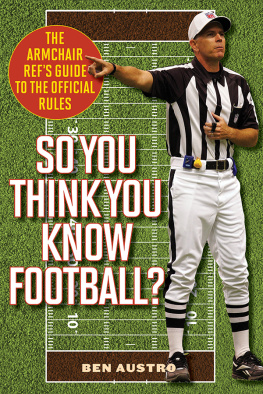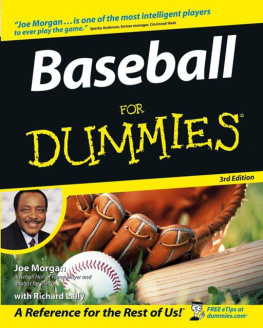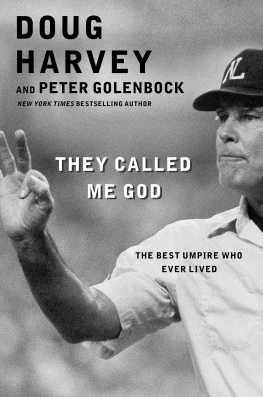

Copyright 2010, 2016, 2019 by Wayne Stewart
Foreword 2016 by Skyhorse Publishing, Inc.
All Rights Reserved. No part of this book may be reproduced in any manner without the express written consent of the publisher, except in the case of brief excerpts in critical reviews or articles. All inquiries should be addressed to Skyhorse Publishing, 307 West 36th Street, 11th Floor, New York, NY 10018.
Skyhorse Publishing books may be purchased in bulk at special discounts for sales promotion, corporate gifts, fund-raising, or educational purposes. Special editions can also be created to specifications. For details, contact the Special Sales Department, Skyhorse Publishing, 307 West 36th Street, 11th Floor, New York, NY 10018 or .
Skyhorse and Skyhorse Publishing are registered trademarks of Skyhorse Publishing, Inc., a Delaware corporation.
www.skyhorsepublishing.com
10 9 8 7 6 5 4 3 2 1
Library of Congress Cataloging-in-Publication data is available on file.
Cover design by Qualcom Designs
Cover photo credit iStock
ISBN: 978-1-51073-930-7
e-ISBN: 978-1-51073-931-4
Printed in China
This book is dedicated to my wife of more than forty-five years, Nancy, to our sons Scott and Sean, to our daughters-in-law Rachel and Katie, and to our grandson Nathan. Also to the memory of my father, O. J., who taught me to love words and their power, and my mother, Margaret, who taught me to love reading. Finally, this book is also respectfully dedicated to umpires everywhere.
Editors Note: Several of the scenarios mentioned in the pages that follow cite players or managers affiliations with teams when the incident occurred. In other words, some of these players and managers have since moved on to new organizations or retired from the game altogether.

CONTENTS

ALBERT PUJOLS
FOREWORD
R on Blomberg played eight seasons in the majors between 1969 and 1978, and all but one year was spent with the New York Yankees. His personal season highs included: 22 doubles, 14 HR, and a .329 batting average.

If theres one rule in baseball that I can relate to, and its one that I am closely associated with, its the designated hitter rule. I guess that only makes sense because on April 6, 1973, I became the first man ever to appear in a big-league game as a DH Do I like the rule? I think its great. Id rather watch somebody that is a great hitter bat than a pitcher. I like the rule, and I think its here to stay.
Some critics say I screwed up the game in 73 as the DH, but Im very proud of it. To be honest with you, at first I never thought that the DH was going to stay in existence. I thought it was a glorified pinch-hitter. When we did it in spring training that year, we didnt talk about the rule, we just said, Go hit for the pitcher, like we always said to pinch-hitters. But it was now, Youre going to hit for the pitcher four times this game. They didnt say, Youre going to be the DH today.
Then, on Opening Day in Boston, I became the first DH in major-league history against Luis Tiant. I saw my name on the score-card before the game: Ron Blomberg, DH. So Im looking at it like, So this is the DH, I guess! In spring training the only reason I was the DH was because I pulled a hamstring. Before that I was playing first base.
I think the rule is great because even though there were a lot of pitchers when we played that were pretty good hitters, now these guys dont even pick up a bat because they played high school baseball, the minors, whatever, and someone else hit for them there. Watching most of them try to hit is no fun.
Since the DH came along more than 40 years ago, the only other big changes to the rule book involve instant replay and the 2015 rules involving the speeding up of games.
The replay? The game is such a quick thing, with lots of bang-bang plays. I can understand using replay if theres a situation to resolve like whether or not a fan touched the ball, or whether something is a home run, but now its getting to be too much. Theyre looking at every play. You have to wait and wait, and umpires have to huddle, then finally make a call. Why do you think the game of baseball is so long now?
As for umpires and the job that they do, I think that being an umpire is like being a policeman. Their job is extremely tough; its almost a no-win situation. If they call somebody out, somebodys going to argue. If they call somebody safe, somebodys going to say something. Would I want to umpire? No.
Ive umpired Little League games, and thats tough enough, but when you get in front of guys now who are making, say, $15 million a year and everything that they do is 100 percent right (so they think), its not easy to do.
I have had a lot of friends who were umpires, such as Al Clark, Marty Springstead, and Ron Luciano. I have the utmost respect for umpires and what they dotheyve been trained just like professional athletes to do a job. They work as hard as we did to get where they are. Id say 98 percent of them do an outstanding job, and even counting their calls on balls and strikes, umpires get things right about 95 percent of the time. Everybodys human; theyre not going to be right 100 percent of the time.
Theres a fraternity in baseball and its not just players; its umpires, too. Theyre part of our family. Even though they dont go out to dinner with us and they dont travel with us, theyre a part of the game. They get booed just like we do.
In the 1955 World Series there was a very close play at the plate on a steal of home by Jackie Robinson. The umpire called him safe and the catcher, Yogi Berra, exploded, arguing that his tag beat Robinsons slide. Every time I saw Yogi, I asked him, Was Jackie Robinson out or safe? He always said he was out. The Brooklyn Dodgers, of course, say he was safe.
But that was the game of baseball, without replay. Thats how the game should be played.
In any case, this book will give you the chance to test your knowledge of baseball rules. Will you get things right 98 percent of the time, or will you blow too many calls? Read on, and good luck.
Ron Blomberg
INTRODUCTION
W ithout question, umpiring is a demanding, difficult job. For many decades umpires didnt get a break during the seasontheyd be lucky to spend any significant time at all with their families from spring training through September. Big-league umps now work around 130 regular-season games, getting four vacations of one week in length spread out over the season.
Once grossly underpaid, Major League Baseballs umpires, as of 2010, earn in the range of $100,000$400,000 per season with most of them pulling down more than $200,000 as of 2008. In addition, they receive around $380 in per diem money and are provided with first-class tickets for their flights. By way of contrast, as of 2010 NBA referees gross between $90,000 and $225,000 for working a much shorter season (pro basketball has an eighty two-game regular season schedule while there are 162 games on baseballs schedule). Of course, umpires who work during the playoffs get extra compensation as well.
Next page



